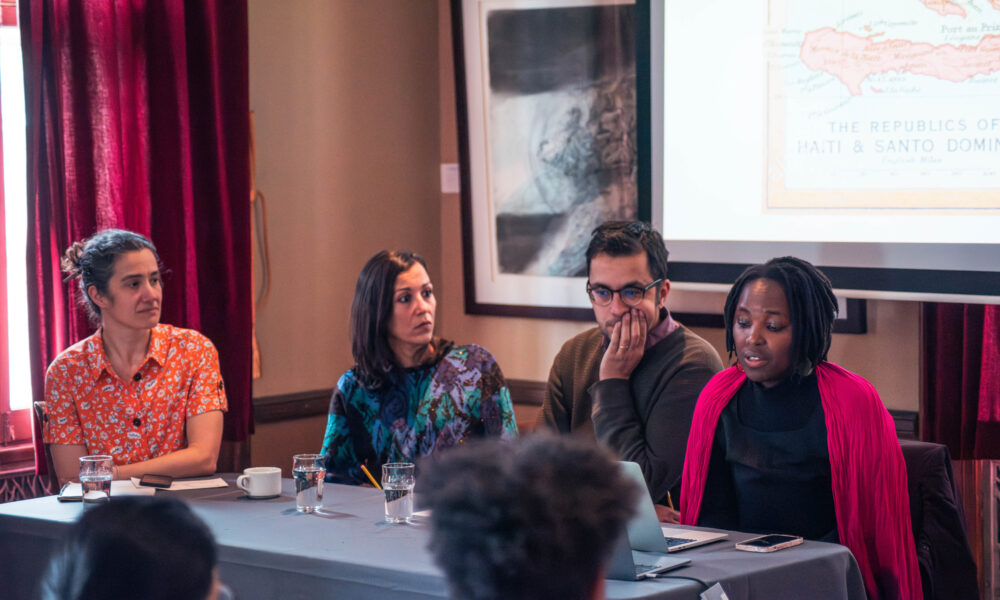Content warning: Mentions of violence and genocide
On March 22, the Institute of the Study on International Development (ISID) hosted a panel titled “Global History, Global Memory.” The panel featured Professors Sabine Cadeau and Pedro Monaville from McGill’s Department of History and Classical Studies, and Professor Elisa Scaraggi from NOVA University Lisbon. Rachel Hatcher, who is a historian, teaches International Development courses, and is McGill’s Jewish Student Affairs Liaison, chaired the panel. This event was part of a day-long conference called “Developing Memory, Memories of Development,” held in the Thomson House Ballroom.
Cadeau was the first to speak about her research on the 1937 Haitian Massacre, the subject of her recently published book, More than a Massacre. She aimed to demonstrate the gap between the history she uncovered through the memory of survivors of the massacre and the records found in the Haitian state archives, trying to preserve the history that has been forcibly removed from state records. Cadeau explained that she found no records of violence during that period of Haiti’s official history. She believes this erasure of violence from history is an intentional act by the state to hide its past crimes.
“Perpetrators of violence contribute to what is easily forgotten,” Cadeau stated.
Monaville continued the discussion, reflecting on the topic of his latest book, Students of the World. He sought to understand and analyze the repression faced by the student movement advocating during the 1960s for the decolonization of Congo. He explained that state policies and practices of violence, exemplified by the Kinshasa student massacre in 1969, led to the suppression of the student movement. For Monaville, this event is reminiscent of the repression of the anti-colonial activism done under the Belgian regime, such as the urban riots in January 1959, before the Republic of Congo became independent in June 1960.
“One of the earliest kicks in my project was to understand the significance of the repression of the student movement in a chain of state violence, connecting the colonial past to the colonial present,” Monaville said.
Afterward, Scaraggi proceeded to talk about the liberation movement in Angola against the Portuguese government, starting in 1961. She explained that the movement comprised three main groups: The National Front for the Liberation of Angola (FNLA), the Popular Movement for the Liberation of Angola (MPLA), and the National Union for the Total Independence of Angola (UNITA). The conflict between the three movements eventually led to a civil war, starting in 1975—the year Angola became independent from the Portuguese colonial regime—and ending in 2002. Scaraggi argued that politics and history were shaped by two important factors: The monopoly of explanation of the past by the prevailing party, MPLA, and a single account of liberation, which was used to legitimize the party’s authority.
Panelists received questions from the public after presenting their work. Jacob Blanc, an associate professor and one of the organizers of the event, explained how the panelists’ research and discussion that ensued align with the ISID’s mission in an interview with The Tribune. Blanc noted that the ISID supports research that conceptualizes the way societies develop themselves and how they think of their development differently from the way international organizations do, which is through “traditional development avenues.”
“[We are] looking at three different postcolonial contexts, thinking about violence—both within the boundaries of colonial forms of oppression and resistance, but then also now in postcolonial context—and what it means to even think about the past, and particularly when the past is very violent and difficult to talk about,” Blanc said.
This piece was updated at 12:10 p.m. on April 4.








